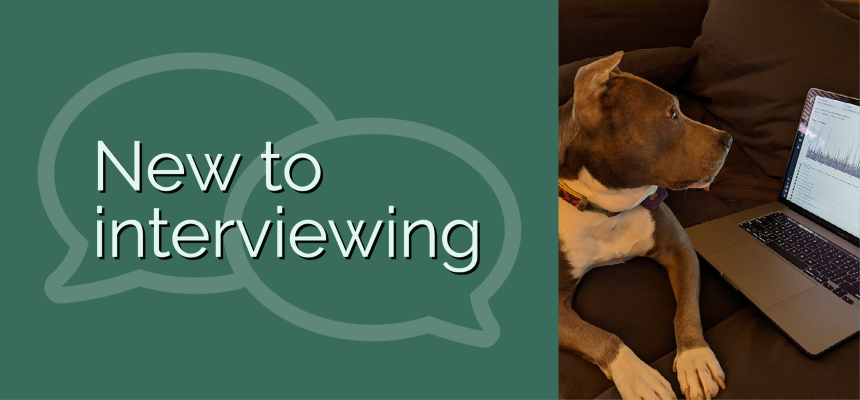
3 minutes
New to interviewing
My friend Kevan just joined the DEV community and his first post asks about interview feedback antipatterns. I spent some time today writing about my experiences with interviewing so far, so I thought I’d share my comment here as well.
I’m new to interviewing, which has meant that I’m often as nervous about the interview as the candidate is (more, for some of them 😂)! Plus I’m being hypervigilant about bias, so I tend to put a lot of thought into my candidate feedback. It feels very strange to be making decisions about someone’s livelihood when I’m not that far removed from being desperate for a job.
You’re 100% right about the importance of making the feedback specific to the role. I’ve recently been involved in interview rounds for two types of roles at my company: visual designer and customer success engineer. For the visual designer role, I sat in on the portfolio review in place of my manager, who had a conflict, and the two of us discussed my feedback afterward so my manager knew what to ask about during the 1:1 interview.
I had trouble making any sort of judgement about the portfolio itself (my thoughts were limited to “that’s a nice rebrand, looks way better” which doesn’t say much), so I focused on the story the candidate told and how they interacted with other teams on their projects, which is something I specifically asked about.
For the customer success engineer role, the responsibilities and skill set are a lot closer to mine, so I looked for the areas where there’s a lot of overlap with my role and talked about that. The director of customer success wanted me involved in hiring for this role because of the importance of user empathy for my job as a developer advocate. I asked about how they would proceed in various customer-facing scenarios I’ve experienced myself, and I wanted to hear how they would approach solving a problem that might involve interacting with teammates across the company, and how they would build/maintain/try to salvage the customer relationship in the process. Those things were what I strove to give feedback on.
I’ve learned a lot from discussing my feedback with the other interviewers, and hearing their thoughts. Sometimes a candidate is a good fit for the role in some ways, but their experience is so far from what our product is about that it would be prohibitively difficult to onboard them. There’s a huge difference between “could this person succeed in this kind of role with enough time and support?” vs. “will this person succeed in this specific role now, with the limited resources we have to train them during their first 90 days?”
It’s also important to hear when other interviewers have a conflicting experience with a candidate from mine. One candidate was perfectly lovely with me but disrespectful to a different interviewer. We can’t afford to deal with that sort of attitude problem.
Finally, we’re a small startup. Each new hire has proportionally greater impact on our decision-making and culture than any new hire at a large, established company would have. Rather than “culture fit,” I specifically look for “culture add,” augmenting the sum of our collective experiences as a team. Our founders and leadership come from Facebook and Google and Microsoft, but that’s probably not where our prospective customers will be working.
Has this person worked in a domain that nobody else at the company has touched before? That diversity is super valuable–it grows our collective blob of experience. This is especially important in a startup where you have to wear a lot of hats and proactively be the glue among teams.
I knew before that candidate feedback is rarely binary, but I see that a lot more clearly now that I’ve been an interviewer myself.
637 Words
2020-10-18 06:11 (Last updated: 2020-10-18 07:10)
bdbe217
@
2020-10-18